Productivity News
Dev
155

Image Credit: Dev
Choosing Dialogue to Deepen the Question (Bite-size Article)
- Searching online may not always resolve vague or complex problems where the question itself is unclear, leading to further confusion and stress.
- The dialectic approach, involving dialogue and questioning, can help reveal hidden assumptions and contradictions, especially in emotionally charged or complex issues.
- This method is beneficial for uncertainties like anxiety about the future, career decisions, relationship issues, and clarifying values and priorities.
- By engaging in dialogue, individuals can uncover underlying reasons for their anxiety, gain clarity on their thoughts, and reach personal resolutions.
- AI chatbots like ChatGPT offer a new way to engage in deep conversations, providing accessibility and persistence in exploring and deepening questions.
- While AI has its limitations and cannot replace human empathy, it offers free access, objectivity, vast knowledge, and constant availability for meaningful discussions.
- Dialogue with AI can be a valuable tool for those seeking clarity and struggling with emotional overwhelm, helping to clarify vague concerns and guide introspection.
- By deepening the question through dialogue, individuals can gain insights and tackle core issues rather than skimming the surface for immediate answers.
- Thinking through dialogue, either with others or AI, can help in organizing thoughts, understanding underlying beliefs, and fostering personal growth through introspection.
- The article emphasizes the importance of moving beyond searching for answers and focusing on deepening questions to facilitate genuine understanding and mental well-being.
Read Full Article
9 Likes
Dev
36

Image Credit: Dev
Debug Smarter: Meet xDebug Pro for Chrome
- xDebug Pro is a Chrome extension that allows effortless PHP debugging.
- Key features of xDebug Pro include one-click enable/disable for XDEBUG_SESSION cookies, IDE profile support for PHPStorm, VS Code, and custom setups, multi-domain debugging support, and smart UI with helpful guidance.
- The extension can be installed from the Chrome Web Store and is free to use.
- xDebug Pro is open source and the source code can be found on GitHub.
Read Full Article
2 Likes
Medium
169

Image Credit: Medium
Microsoft’s New Recall AI: Genius Productivity Tool or Privacy Disaster?
- Microsoft Recall is an AI tool in Windows 11 that takes snapshots of your screen to create a searchable timeline of your activity, aiming to increase productivity.
- Originally criticized for privacy concerns due to constant screenshot-taking, Recall underwent revisions before being cautiously relaunched to Windows Insiders.
- The updated Recall allows users more control over data collection, opting for an 'opt-in' approach and addressing potential privacy breaches.
- While Recall offers impressive productivity benefits, concerns remain about potential privacy implications, especially regarding capturing others' information involuntarily.
- Despite encryption and local storage, critics worry about security breaches and misuse of user data, prompting close monitoring from regulatory bodies like the ICO.
- Recall is recommended for users seeking enhanced organization tools and quicker access to past activities, but privacy-conscious individuals may opt out of using it.
- Previewed for Windows Insiders, Recall is primed for a public release in 2025, with ongoing improvements based on feedback and compliance with regional privacy laws.
- The decision to try Recall ultimately rests on individual comfort with AI-driven productivity tools and willingness to navigate potential privacy trade-offs.
- Microsoft aims to balance productivity gains with privacy protection in Recall, acknowledging the necessity of building user trust in the evolving technology landscape.
- As Recall evolves based on user responses and privacy standards, its success will hinge on effectively addressing privacy concerns while delivering on its productivity promises.
- Whether Recall proves to be a revolutionary tool or a privacy debacle will be determined by user adoption rates, feedback, and the effectiveness of Microsoft's privacy safeguards.
Read Full Article
10 Likes
Dev
409
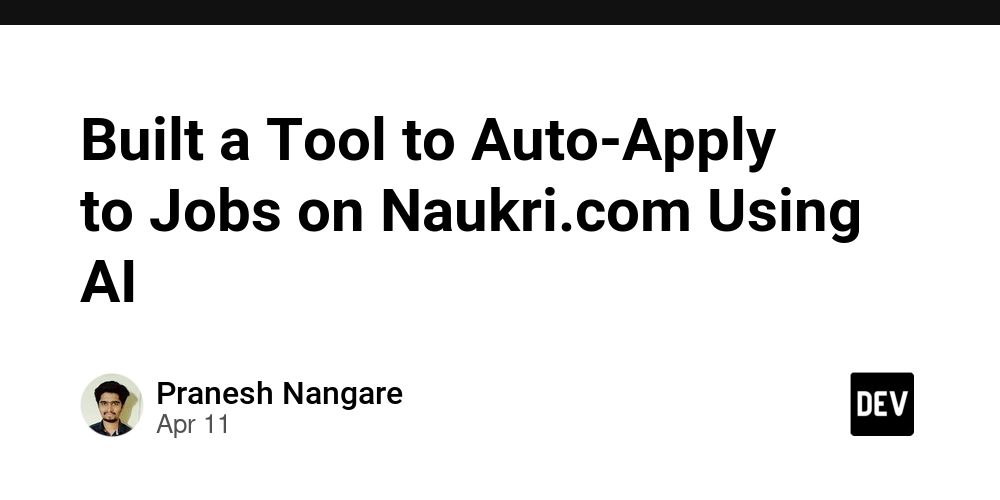
Image Credit: Dev
Built a Tool to Auto-Apply to Jobs on Naukri.com Using AI
- A developer has built a command-line tool to automate job applications on Naukri.com.
- The tool automates logging in, fetching jobs, filtering irrelevant ones, and applying to relevant jobs.
- It uses Generative AI to answer application questions and sends automated emails to recruiters.
- The tool is available as an NPM package for easy installation and usage.
Read Full Article
24 Likes
Medium
73

From Idea to Deployment: Managing the End-to-End AI Product Journey
- The end-to-end AI product journey involves several phases: ideation and validation, feasibility and scoping, data acquisition and preparation, model development and experimentation, integration and engineering, testing beyond the metrics, deployment, and monitoring, maintenance and iteration.
- Phase 1: Ideation & Validation - Start with a problem rather than a technology, and determine if AI is suitable for the solution.
- Phase 2: Feasibility & Scoping - Assess the potential of building the solution and address any challenges.
- Phase 3: Data Acquisition & Preparation - Gather and clean the data to ensure its quality.
Read Full Article
4 Likes
Leah’s ProducTea
245
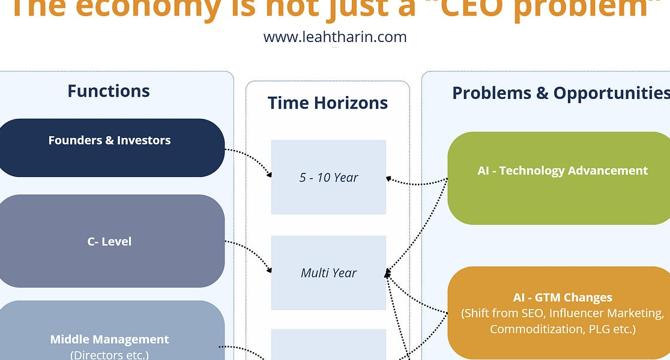
Image Credit: Leah’s ProducTea
"Why shoud I worry about what's happening in the economy?"
- Product and growth leaders should be educated about the global economy as it influences planning, budgeting, and risk-taking.
- Understanding the "Fear & Greed" index can provide insights into market movements and investor behaviors.
- Monitoring indicators like Hubspot's performance can offer insights into how small businesses, a key market segment, are faring.
- The outlook for B2B SaaS is influenced by the broader economy, AI technology advancements, and changes in software solutions.
- Recessions can impact both B2B and B2C markets, leading to slower sales and increased cancellations.
- Individuals should focus on customer success metrics, value proposition, pricing strategy adjustments, and feature prioritization during economic uncertainty.
- Understanding churn and retention is crucial for product leaders, while growth leaders should focus on pricing and delivering value quickly.
- Focusing on essentials, demonstrating ROI, and working closely with go-to-market teams are essential strategies during market challenges.
- Middle management responsibilities may fall on individual contributors amid cuts, necessitating a shift in focus towards economic considerations and customer success.
- Product and growth leaders should align their strategies with customer outlook and prioritize features that deliver immediate value to adapt to changing market conditions.
Read Full Article
12 Likes
Dev
224

Image Credit: Dev
We’re Building an App, and You’re in for the Ride
- Thiago, a software engineer, is teaming up with Rian to develop a mobile app and document their journey.
- Their main goal is to build a positive personal brand and digital footprint through this project.
- They plan to start small with a habit tracker and gradually evolve it into a shared accountability tool.
- Thiago and Rian will be using a combination of tech stack including NestJS, React Native, and Docker, while sharing updates and insights on dev.to throughout the journey.
Read Full Article
13 Likes
Dev
293

Image Credit: Dev
Notes on Llama 4: The Hits, the Misses, and the Disasters
- The Llama 4 family includes Scout, Maverick, and Behemoth models, with Behemoth still in training and reportedly outperforming current models.
- Despite having three models, the Llama license limitations remain unchanged, restricting use for companies with over 700 million monthly users and excluding Europeans.
- Meta shifted from dense models to Mixture of Experts in Llama 4, with the Scout having a 10M context length, outperforming past models.
- The Llama 4 models are praised for their natively multi-modal capabilities, understanding texts, images, audio, and videos.
- Teacher-student distillation from Llama 4 Behemoth to Maverick marks a significant quality improvement step.
- Concerns arise as Llama 4 models underperform peers in various benchmarks, including coding tasks, long-form writing, and multi-tool calls.
- Llama 4 faces criticism for confused positioning in the market, not being affordable yet lacking brilliance compared to rivals.
- Issues like exaggerated context length claims, benchmark discrepancies, and tokenization troubles plague the Llama 4 launch.
- While hope remains for Behemoth to redeem Meta's reputation, concerns over its performance compared to Grok 3 linger.
- The rushed release of Llama 4 has led to benchmark controversies and overall disappointment in model performance across various evaluations.
- Despite the setbacks, Meta aims to address and improve the issues faced with Llama 4, hoping to stabilize implementations and unlock the models' value.
Read Full Article
17 Likes
Medium
27
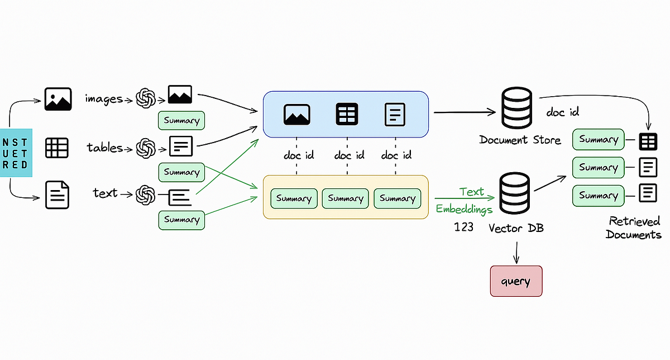
Image Credit: Medium
Multimodal RAG From PDFs To Data Store For PDF Chatbots Part-2: Summarization
- This article is the second part of a series on creating a Multimodal RAG (Retrieve, Aggregate, Generate) pipeline for chatbots from PDFs. The first part focused on extracting text, tables, and images from PDFs.
- In this second part, the author discusses the process of summarizing the extracted data elements using text embeddings and storing them in a vector database.
- The article outlines the flow of the process, starting with the creation of a standard prompt for the language model. The author also provides instructions for creating a prompt for image elements.
- The article also mentions the use of the Gemini-2.0-flash model for cost-effectiveness. The importance of a .env file for storing the Google AI API key is highlighted.
Read Full Article
1 Like
ADPList’s Newsletter
350
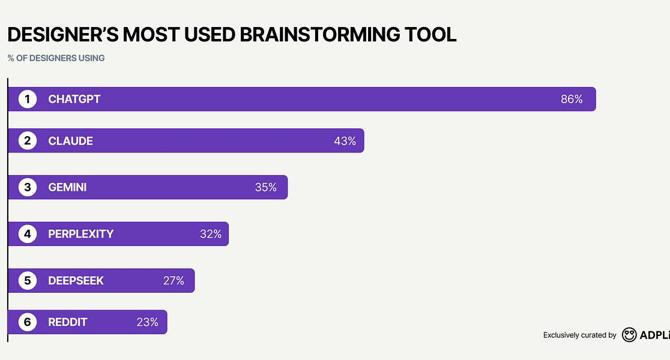
Image Credit: ADPList’s Newsletter
The State of Design Tools 2025
- A survey conducted by ADPList in 2025 revealed key insights about the design tools being used by professionals across various industries.
- Figma remains the top choice for designers with 93% using it, overshadowing Adobe XD and Sketch.
- Notion has emerged as a popular creative hub, utilized for project tracking, content calendars, and design systems by over 55% of creatives.
- FigJam has gained traction for whiteboarding purposes, with 47% of respondents using it for brainstorming.
- Framer is noted as the top emerging web builder, increasingly favored for creating no-code sites.
- ChatGPT leads in aiding design workflows, while Reddit is recognized for unconventional research purposes.
- AI tools like Midjourney, Uizard, and Magician for Figma are incorporating visual concepts and aiding in ideation for designers.
- User testing tools such as Maze and Useberry are gaining significance for validating design decisions.
- Google Drive remains a popular storage choice, but Dropbox is making a comeback with its user-friendly interface.
- While Slack dominates team communications, Discord has found its place in design communities and creative feedback circles.
- In the AI design tools category, ChatGPT continues to be prominent, alongside rising tools like DeepSeek and Perplexity for research-heavy workflows.
Read Full Article
20 Likes
Dev
128

Image Credit: Dev
5 AI Tools to Build Your First MVP in Days, Not Months🚀🚀🚀
- AI tools are revolutionizing the startup world by enabling MVP development in days with high quality.
- Cursor, an AI-powered IDE, accelerates coding with AI-generated code and proactive error detection.
- Entelligence AI streamlines PR reviews, documentation, management insights, and integrates seamlessly for faster development cycles.
- Perplexity AI simplifies research with AI-powered answers, tech stack comparisons, citations, and internal knowledge search.
- ChatGPT enhances product ideation, user story generation, market positioning, UI/UX prototyping, and tech stack decisions.
- HeyGen aids in creating engaging explainer videos with AI avatars, voice cloning, personalized videos, and multilingual capabilities.
- These tools help founders in ideation, code development, research, product positioning, and video creation for their startups.
- Build your MVP faster and with higher precision using these advanced AI tools in various aspects of startup development.
- Each tool offers unique features like AI-powered code generation, intelligent PR reviews, natural language editing, and advanced research capabilities.
- Incorporating these tools can drastically reduce development time, enhance productivity, and streamline processes in a startup environment.
- The combination of these AI tools empowers founders and product teams to innovate, iterate, and bring ideas to market in record time.
Read Full Article
7 Likes
Medium
265

7 Tools That Will Make You a More Productive DevOps Engineer
- fzf is a command-line fuzzy finder that makes searching interactive and super fast.
- tmux allows you to create multiple terminal sessions within a single window and manage remote servers.
- fzf provides faster file and command searching, reducing the need for manual typing.
- tmux is useful for keeping SSH sessions active, running multiple tasks in parallel, and remote server management.
Read Full Article
15 Likes
Dev
311

Image Credit: Dev
🎉 2000 Followers on Dev.to – Thank You, DevOps Fam! 🙌
- DevOps Challenge Hub has reached 2000 followers on Dev.to.
- The journey of learning, sharing, and growing together in the DevOps space.
- Emphasis on simplifying DevOps and cloud concepts for learners.
- Future plans include more hands-on projects, emerging tech in DevOps, and collaborations.
Read Full Article
18 Likes
The Beautiful Mess
59
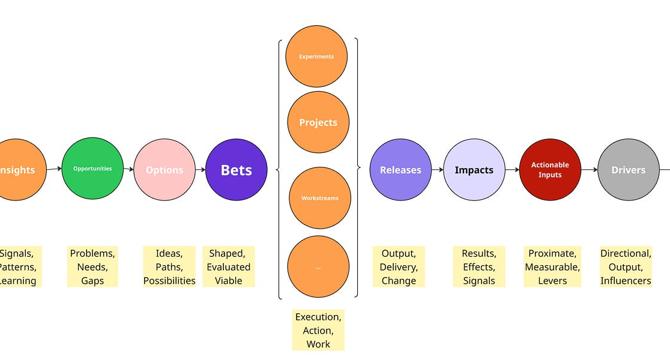
Image Credit: The Beautiful Mess
TBM 350: Connecting Dots
- The newsletter 'TBM 350: Connecting Dots' discusses the challenges faced in product development and operational strategies.
- It explores questions like ensuring visibility, dealing with complexity, and resisting pressure to conform to a singular process.
- The author uses diagrams to illustrate two contrasting approaches - project-based work breakdown and bet-driven, experiment-led models.
- The article emphasizes the importance of understanding causation and the uncertainty inherent in innovation.
- It highlights the interconnected nature of various work components and time horizons in influencing outcomes.
- The discussion delves into the complexities of structuring product organizations to adapt to dynamic environments.
- It stresses the importance of minimizing globally consistent operational elements and allowing for local variations in work processes.
- The article underlines the significance of physical boards for enabling effective communication and decision-making in product development.
- It cautions against treating abstract models as concrete realities and advises on the selective centralization of operational processes.
- The author recommends utilizing fractal structures and avoiding strict cascading models in managing product development effectively.
- Lastly, the article suggests focusing on rituals, interactions, and shared language to enhance collaboration in product development teams.
Read Full Article
2 Likes
Dev
219
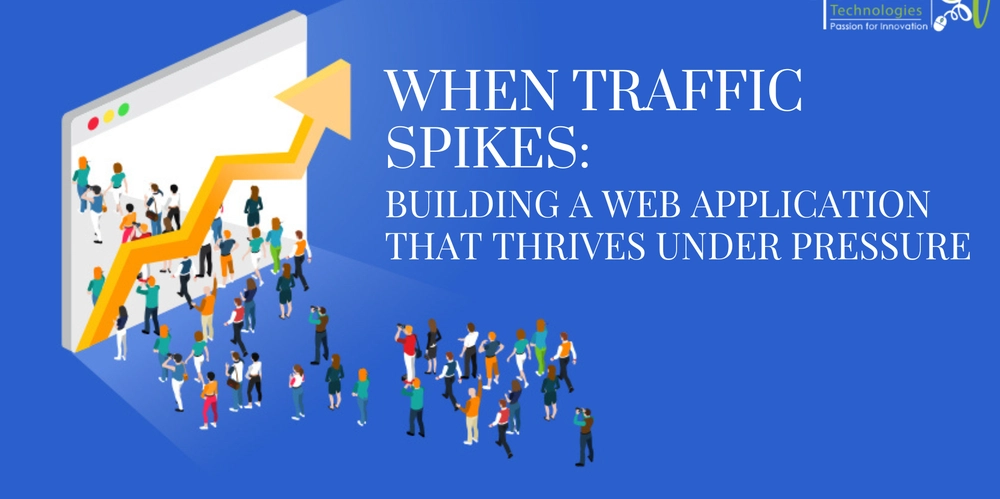
Image Credit: Dev
When Traffic Spikes: Building A Web Application That Thrives Under Pressure
- In the digital-first world, website performance during high-traffic events is crucial for business success.
- Traffic spikes can be caused by seasonal events, viral marketing, unexpected launches, media coverage, search engine results, and advertising campaigns.
- Website downtime during traffic surges can lead to significant financial losses, brand reputation damage, erosion of customer trust, and increased operational costs.
- Critical paths in web applications, particularly in e-commerce, include payment processing, order workflows, inventory management, session handling, and database transactions.
- Building for resilience involves scalable infrastructure, robust load balancing, performance testing, website optimization, and streamlined checkout processes.
- Implementing cloud-based solutions, CDNs, load balancing, and rigorous testing can help websites handle traffic surges effectively.
- Optimizing front-end and back-end performance, streamlining the checkout process, and making strategic preparations are essential for website resilience.
- Monitoring tools like Google Analytics, Semrush, New Relic, Datadog, and Pingdom provide real-time insights during traffic spikes.
- Genesis Technologies offers custom scalable architectures, advanced testing frameworks, expert DevOps implementation, content delivery optimization, and strategic traffic management to help websites thrive under pressure.
- By preparing for traffic spikes through robust systems and operational procedures, websites can turn high-traffic events into revenue opportunities.
Read Full Article
13 Likes
For uninterrupted reading, download the app